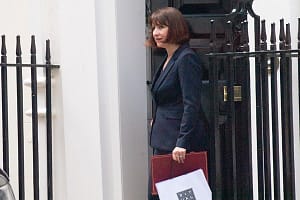A new report says today’s finance director is more incisive than ever – with eyes on the top job
Know the Monty Python sketch where John Cleese plays the careers counsellor and Michael Palin the despairing chartered accountant, Mr Anchovy?
Dour-faced Cleese tells Anchovy that his ideal job is a chartered accountant, to which Anchovy replies: “No! No! No! You don’t understand. I’ve been a chartered accountant for the last 20 years. I want a new job. Something exciting that will let me live.”
Anchovy, we soon discover, dreams of being… a lion tamer.
Alas, If he were practicing today (rather than 1969) Anchovy may well have felt differently. Today’s chartered accountant is a highly sought-after professional, often with the role of finance director firmly in sight and, increasingly, that of CEO – for the role of accountants and FDs has evolved in recent years.
A perfect storm of recession and advances in technology have simplified traditional bookkeeping, while necessitating new tools for closer financial analysis and revolutionising the role of the FD in the process.
Today’s FD
According to a recent report by Hays, the leading recruiting experts, most FDs still come from an accountancy background (75%) – but they are a far cry from the wretched Anchovy. They are hard-working, astute networkers who find their jobs hugely rewarding.
In fact, of the 800 FDs Hays surveyed, more than half said they’d like to take on a bigger finance role, while an ambitious 12% had their sights set on becoming CEO or starting their own business.
Take a look at another recent survey of the FTSE 100 and you wonder why it’s not more; the number of FTSE 100 CEOs with finance backgrounds has increased from 31% in 2008 to 52% in 2013.
Look closer at the women holding executive roles in the FTSE 100 and the trend is equally striking. According to research by ACCA, this time last year, of the 20 ED roles held by women, nine were finance roles. In fact, of the 20 executive directorships held by women, a total of 13 had finance backgrounds.
The role of digitisation
So what happened? Well, for a start, FDs were made to step up. After the world collapsed into financial meltdown, naturally all eyes turned to the finance team to cut costs. But, crucially, FDs were also increasingly called upon to help reshape business strategy too. Meanwhile, e-commerce bloomed and accountancy software grew wildly sophisticated.
In fact, digitisation has been so instrumental to the reshaping of finance roles that the FD has impacted on the development of technology as much as the other way around, argues Rick Payne,Technical Manager from ICAEW Finance and Management Faculty.
“FDs have been heavily involved in digitisation and technology since the first introduction of computers into business. So to some extent, FDs have shaped the role of digitisation and technology in organisations. It is not uncommon for the CIO to report to the FD.”
Distilled to the every day, IT continues to be a driving factor for change, says Payne: “IT has had many impacts on the FD’s role. Huge amounts of information, which have the potential to bombard FDs from many directions, means effective prioritisation becomes increasingly important – together with effective systems and staff to filter the important from the junk and enable the rapid responses required in business today.”
Rapid response unit
These rapid responses have a lot to answer for. The recession has brought into sharp focus exactly how a business turns and loses profit. Hays’ group finance director Paul Venables puts it succinctly when he says: “Nobody’s going to hire you simply for your ability to add up the numbers. Clearly you’re responsible for all aspects of finance, but you’re here to add commercial value and support the chief executive in running the business.”
In other words, business acumen and commercial awareness are essential qualities a good FD must possess. Hays’ survey found that many FDs agree; 36% of respondents cited commercial awareness as the most important attribute to have, with people management skills second and strategic planning third. Just 4% chose financial accounting and technical knowledge.
“Maybe this helps to explain why a number of FDs go onto MD and CEO positions or indeed take a calculated risk to set up their own business ventures,” says the report.
Evidently, FDs relish their new role as trusted advisor to the board as much as the business world has grown to depend on it. Big business must continue to encourage this influential voice in operational functions and business strategy if they’re to keep growing in their roles.
The Hays report concludes that FDs “are seen as corporate governor, trusted adviser, business partner, analyst, economist, risk expert and even technology guru”.
It seems only natural that CEO comes next, rather than lion tamer.
- Follow us @LondonlovesBiz
- Try our free newsletter
London Loves Talent is brought to you in partnership with Hays
More from London Loves Talent:
How the FD became every company’s Number Two, and what makes a great one
The Great British talent mismatch: why can’t businesses find the skills they need?
Still pitching with all-male teams? You could be losing business because of it
Get your business and talent recognised – enter the London Loves Talent Awards by 6 December
Judged by Tim Campbell, Will King, Terry Morgan CBE, Amit Bhatia, Matthew Hancock MP, June Sarpong & more






Leave a Comment